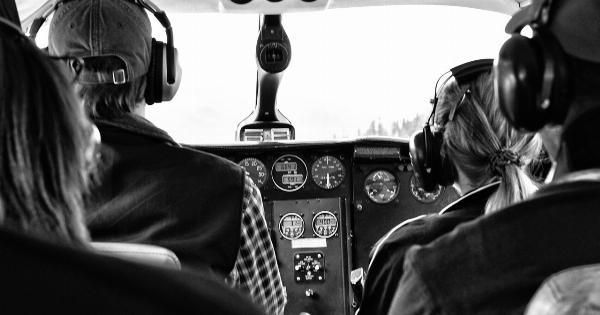Barotrauma Solutions: Keep Your Ears Pain-Free During Flights
When it comes to air travel, one common issue that many passengers experience is ear discomfort or pain during take-off and landing.
This discomfort is caused by a condition known as barotrauma, which occurs when there is a difference in pressure between the inside and outside of the ear.
Barotrauma is a condition that affects the ears and occurs when there is a quick change in the air pressure surrounding the ear. This rapid change can cause the eardrum to stretch or even rupture, leading to pain, discomfort, and sometimes hearing loss.
Barotrauma can occur during activities such as scuba diving, flying, or driving at high altitudes.
Symptoms of Barotrauma
The symptoms of barotrauma can vary from person to person, but some common signs include:.
- Ear pain or discomfort
- Feeling of fullness or pressure in the ears
- Hearing loss or muffled hearing
- Dizziness or vertigo
- Tinnitus (ringing in the ears)
Preventing Barotrauma During Flights
Fortunately, there are several effective ways to prevent barotrauma and keep your ears pain-free during flights. Here are some solutions you can try:.
1. Swallowing or Yawning
One of the simplest and most effective ways to equalize the pressure in your ears is to swallow or yawn frequently during take-off and landing.
These actions help to open up the Eustachian tubes, which connect the middle ear to the back of the throat, allowing air to flow in and out.
2. Chewing Gum or Sucking on Candy
Chewing gum or sucking on hard candy can also help to stimulate swallowing and relieve pressure in the ears. The constant movement of the jaw and the act of swallowing can help equalize the pressure and prevent barotrauma.
3. Breathing Exercises
Practicing breathing exercises can also be a helpful technique for equalizing ear pressure. Taking deep breaths and exhaling slowly can regulate the airflow and prevent pressure build-up in the ears.
4. Nasal Decongestants
If you frequently experience difficulty equalizing ear pressure during flights, you can try using over-the-counter nasal decongestants.
These medications can help reduce nasal congestion and open up the Eustachian tubes, making it easier to equalize pressure.
5. Using Ear Plugs
Wearing specialized ear plugs or earplugs designed for air travel can help regulate air pressure changes and prevent barotrauma.
These ear plugs are typically made from a soft silicone material that can adapt to the shape of your ear and provide a comfortable seal.
Treatment for Barotrauma
If despite your best efforts you still experience symptoms of barotrauma during or after a flight, there are a few methods you can try to alleviate the discomfort:.
1. Yawning or Swallowing
Similar to preventing barotrauma, yawning or swallowing can help relieve the pressure in your ears. Try these actions regularly until the discomfort subsides.
2. Applying Warm Compress
Gently applying a warm compress to the affected ear can help reduce pain and promote healing. Ensure that the compress is not too hot to avoid causing any burns.
3. Taking Over-the-Counter Pain Relievers
If the pain is persistent, you may consider taking over-the-counter pain relievers such as acetaminophen or ibuprofen. However, it’s always advisable to consult with a healthcare professional before taking any medications.
4. Resting and Relaxing
Allowing your body to rest and relax can aid in the healing process. Avoid exposing your ears to further pressure changes and give them time to recover.
When to Seek Medical Attention
In most cases, the symptoms of barotrauma will subside within a few hours or days.
However, if the pain or discomfort persists or is accompanied by severe symptoms such as hearing loss or bleeding from the ear, it is essential to seek medical attention promptly. A healthcare professional can assess the severity of the condition and provide appropriate treatment.
Conclusion
Barotrauma can be an uncomfortable and painful experience during flights, but with proper prevention and treatment techniques, you can help keep your ears pain-free.
Remember to swallow or yawn frequently, chew gum or suck on candy, and try breathing exercises to equalize ear pressure. Additionally, using nasal decongestants or specialized ear plugs can also be beneficial. If you experience persistent symptoms, it’s crucial to consult with a healthcare professional for further evaluation and guidance.



























